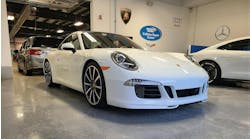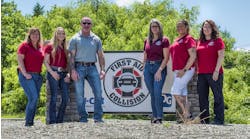Obviously the answer depends partly on where you live and what you drive. I’ve driven in almost every state and several foreign countries, in every kind of traffic and on every kind of road and in a wide variety of vehicles. This rich and varied experience has taught me that each part of the world has its own unique driving style that somehow reflects the local culture.
I’ve learned to look for that local style so I can anticipate other drivers’ actions, and that it’s important to drive like they do, because when everyone drives the same way, then everybody knows what everybody else is doing and traffic moves smoothly, quickly and safely. What we learn from experience is how to tell what other drivers are doing and how to know what they expect us to do.
I’ve seen something similar in business too, particularly in the automotive service business. In the different places I’ve driven, I’ve tried to visit at least one service shop or parts store – not professionally but as a customer. It’s especially educational and entertaining in foreign countries. I once bought an exhaust flange gasket for a Russian Lada, just because it was on the shelf right in front of me and it was cheap. Now I have a Lada part hanging in my garage (although my brother, who should know, says it’s a Fiat part, but that’s a different story). It’s as though we both changed lanes without signaling, even though we both knew what could happen.It was a busy day in that parts store, and as I observed the flow of traffic, I saw that the counterman and his customers seemed to know what to expect from each other. The pros could tell the counterman exactly what they wanted, but the counterman had to ask his DIY customers several questions before he understood what they wanted. However, both customers expected the counterman to know exactly what they wanted.
This reminded me of a transaction back home. I once had a flat tire and took it to a local shop asking to have it patched, not plugged. The
man said they only used plugs, so I asked them to simply remove the tire from the wheel so I could take it home and patch it myself. He asked me
to leave the wheel and come back later, and when I returned, he was gone and the tire had been plugged.
It’s hard to say who’s to blame for this misunderstanding, but I should have known better. I asked that shop for a service they don’t normally sell, and although the man I spoke with understood what I wanted, there was no repair order. Someone was probably given the job without clear instructions and just automatically did what they do with flat tires.
I have the feeling that if I had clearly approached them as a pro, not a DIYer, they would have done what I expected. On the other hand, because customers don’t normally tell a shop how to fix their car, someone simply did what they thought was expected of them.
It’s as though we both changed lanes without signaling, even though we both
knew what could happen. At least the damage was minor, and we both gained valuable
experience.



